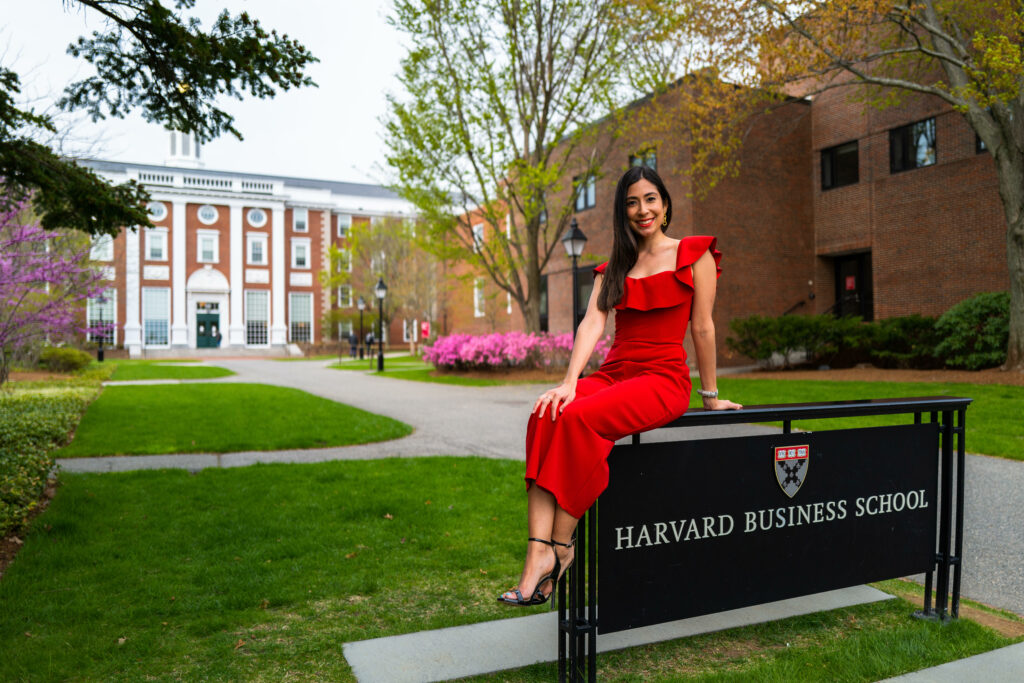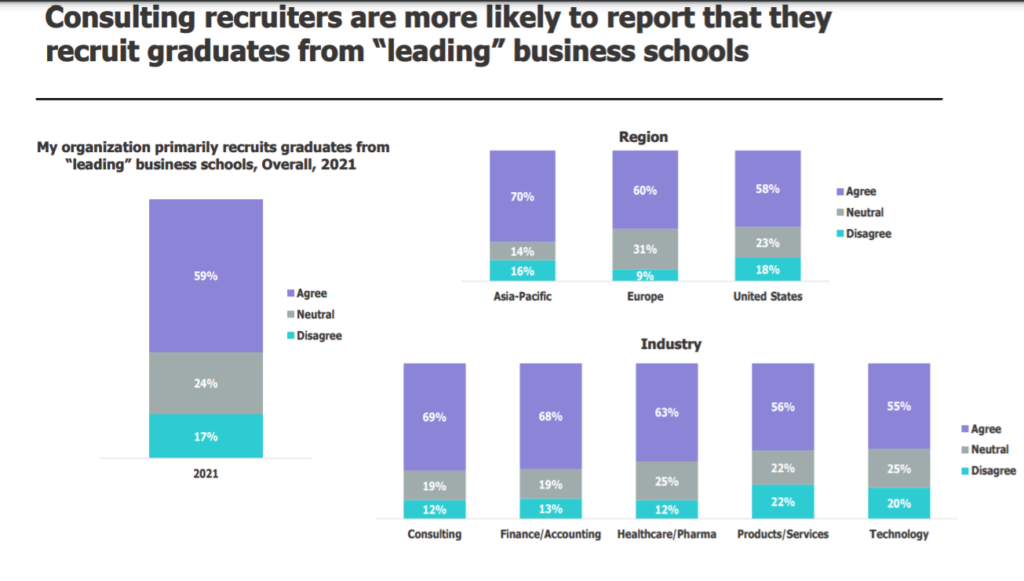Do you need an MBA from a top program?

Once you’ve decided to pursue an MBA, the next step is choosing the best program for you. But with more than a thousand to choose from in the U.S. alone, how do you narrow down your options?
You can hone in on the programs in your state or region. Or scour the latest MBA rankings from Financial Times, US News, or Bloomberg Businessweek to determine which schools are most recognized.
And we’re sure this question has crossed your mind–do I need to attend a top MBA program to have the most valuable experience and job prospects?
As with most career decisions, the choice of whether to attend a top-tier, mid-tier, or unranked MBA program is individual and depends on a myriad of factors from how much you want to invest in your education to the type of connections you want to build.
“The same way schools are evaluating you holistically, develop your target list by looking at the factors that are most important to you,” says Jeneta Hot, founder of MBAchic.
She says it’s important to reflect on the type of experience you’re expecting and find an MBA program that can help you meet those goals.
“Look at rankings, but also dive into things like employment reports, support you’ll receive and what alumni have gone on to achieve. A top-ranked program that is an investment banking powerhouse might not be the best possible fit for you if your goal is to be the next CMO in streaming. A school that is lower on the global MBA rankings might actually be a “feeder” program for your dream company and offer you key networking opportunities,” Hot says.
What’s considered a ‘top school’ anyway?
We’ll acknowledge that the definition of a “top” MBA program is subjective. For some, it may mean one of the highly competitive schools that make up the “M7,” aka magnificent or magic seven schools that include: Harvard Business School, the University of Pennsylvania’s Wharton School, Stanford Graduate School of Business, Columbia Business School, Northwestern University’s Kellogg School of Management, Chicago Booth, and MIT Sloan.
For others, a top school may be one ranked in the top 100 in the U.S. or the globe based on alumni salaries, reputation, career services, or diversity of staff and students.
Laura Sandoval-Tai, an associate at McKinsey & Company, said rankings, curriculum/career support, and location were the most important factors when she was deciding where to apply for her MBA program.

She ultimately chose Harvard Business School to send a message to her future employer and little girls that look like her.
“On rankings, it mattered for me to apply to a top ranking school (especially the Ivy Leagues) because I believed an Ivy League or top MBA designation would give me the validity and credibility I needed as a Latina woman from a low-income background to make a difference in the business realm.”
Still, many MBA candidates are valuing schools outside the Ivy League. Intriguingly, after a hot 2020 admissions cycle where applications soared, fewer people applied in Fall 2021 to some of the U.S.’ most prestigious MBA programs.
Northwestern’s Kellogg School of Management experienced a 20% drop in applicants and Columbia Business School had a 6% decline in application volume, according to the Wall Street Journal.
What recruiters say
Corporate recruiters in the consulting and tech industries are more likely to recruit graduates from “leading” business schools, according to several recent reports, including the 2021 Corporate Recruiters Survey.

In a 2021 survey on Diversity in the Tech Industry, of the 270 business leaders surveyed, a fifth said they exclusively hire graduates from top colleges, and an additional 29% said they are more likely to hire from top institutions. Only 24% said they consider applications from all universities equally.
However, these findings are not universal. Major organizations such as Amazon say they consider great talent from all schools. Amazon offered full-time jobs to candidates from more than 100 business schools around the world in 2021, including top-ranked institutions in the U.S., U.S. schools ranked 21+, global business schools, and schools with programs that align with specific roles.
“Amazon firmly believes great talent is everywhere and considers students from all schools during the recruitment process,” company recruiters told MBAchic.
A personal choice
Sandoval says she ultimately chose Harvard “because it is an institution that is internationally recognized, has an excellent general management and leadership curriculum, and has a great track record for developing future CEOs, startup founders, and other alumni who change the world.”
She graduated with her MBA in 2021.
“A top-ranked program won’t really ever be a ‘bad’ decision, but it is a personal choice to make. The MBA can be an incredible unlock for women; base your target list on what you want to achieve in business school and beyond,” says Hot.

Are you working on your target list of schools for this application cycle? Watch this free workshop by MBA admissions consultant, Barbara Coward, and start your search here (created in partnership with Barbara Coward, MBA 360).
Photos from Laura Sandoval-Tai and Barbara Coward







